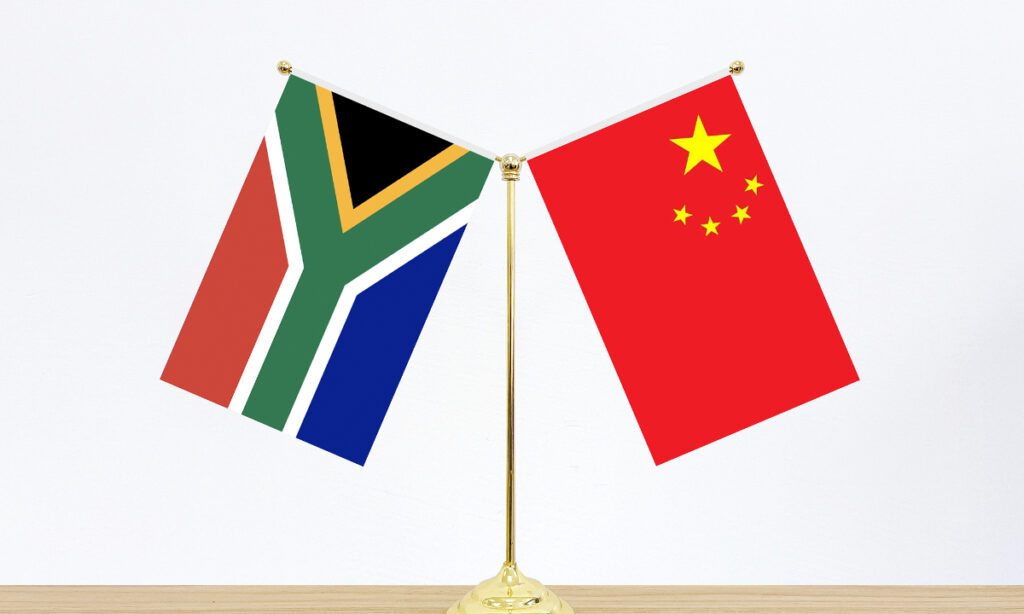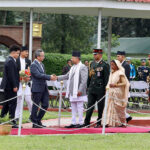Bilateral relations in ‘golden age’ with promising future: experts
Cooperation between China and South Africa is set to further boom following Chinese President Xi Jinping’s state visit to South Africa as bilateral relations have entered a “golden age,” experts said.
At the invitation of President of the Republic of South Africa Cyril Ramaphosa, Xi will attend the 15th BRICS Summit to be held in Johannesburg, South Africa and pay a state visit to South Africa from Monday to Thursday, the Chinese Foreign Ministry announced on Friday.
During the visit, Xi will exchange views with Ramaphosa on bilateral relations and international and regional issues of mutual interest, and draw up a blueprint for the growth of bilateral relations, Chinese Foreign Ministry spokesperson Wang Wenbin told a press conference on Friday, adding that as a South African scholar said, China-South Africa relations have entered a “golden age,” and the future holds great promise for the relationship.
South Africa is China’s comprehensive strategic partner and the first African country that joined the China-proposed Belt and Road Initiative (BRI) cooperation, Wang said.
Experts anticipate the state visit to consolidate the partnership in fields that are already in progress while injecting fresh impetus into bilateral cooperation in aspects with unleashed potential to help South Africa be further involved in the global industrial chain, especially under the China-proposed BRI.
South Africa has a relatively better economy and strong foundation in industrial development and the processing industry in Africa, which has been a major focus for trade and economic exchanges, Song Wei, a professor at the School of International Relations and Diplomacy at Beijing Foreign Studies University, told the Global Times on Sunday. Song added that cooperation will help South Africa’s post-pandemic economic recovery and diversify its development patterns.
China’s foreign direct investment stock in South Africa has exceeded $10 billion covering various fields from finance to energy, while South Africa is the largest African country in terms of investing in China, Shu Jueting, a spokesperson of China’s Ministry of Commerce (MOFCOM), said on Thursday. Shu said that the two sides have formed stable and strong cooperation for the industrial and supply chains.
Bilateral trade in the first seven months of 2023 reached 226.15 billion yuan ($31.06 billion) with a year-on-year increase of 10.5 percent, data from China’s General Administration of Customs (GAC) showed.
China mainly imports resource products from South Africa while it exports manufactured goods to the African country such as electromechanical equipment and textiles, according to a guide released by the MOFCOM in 2022. Meanwhile, Chinese enterprises have been actively engaging in local infrastructure expansion.
Chinese corporations have been winning public tenders for constructing roads, bridges, dams and ports in South Africa while actively working with the country in dealing with electricity shortages and energy production under the BRI, South African Ambassador to China Siyabonga Cyprian Cwele told the Global Times in July. He also called for greater cooperation in terms of the new economy, the digital economy and technologies to help the country in the digitalization of its economy and transformation of production methods.
Ramaphosa in July welcomed the launch of the Huawei Innovation Center in Johannesburg, the largest city in the country, saying the center will promote skills development and improve the country’s competitiveness and economic growth.
Chinese tech firm Hisense entered South Africa in 1996 with products covering more than 5,000 local stores. The company’s industrial park in South Africa is a major project under BRICS cooperation covering an area of 100,000 square meters and with initial investment of $300 million, according to official data.
The ocean economy could also be a focus for the future of bilateral cooperation in addition to strengthened cooperation in the energy sector, He Wenping, director of the African Studies Section at the Institute of West Asian and African Studies under the Chinese Academy of Social Sciences, told the Global Times on Sunday.
Song expected enhanced cooperation in the financial sector targeting aspects such as settlement in local currencies under the BRI. Song also highlighted the cooperation potential for cultural exchanges in movies, tourism and education, adding that the continued inflow of Chinese investment will help promote local employmenth.
The latest move came as the Johannesburg branch of China Construction Bank and the Coega Development Corp signed a memorandum of understanding on August 15 in a bid to further promote economic and trade exchanges and cooperation while accelerating the economic recovery of South Africa, chinanews.com reported.
The upcoming BRICS Summit under the theme of “BRICS and Africa: Partnership for Mutually Accelerated Growth, Sustainable Development and Inclusive Multilateralism” will be the first in-person BRICS summit in more than three years and the first BRICS summit to be held in Africa in five years, according to Wang.
Both Song and He noted that China and South Africa will further voice the major concerns of developing economies, support for core topics such as the multilateral trading system, and further promote regional integration in Africa.




